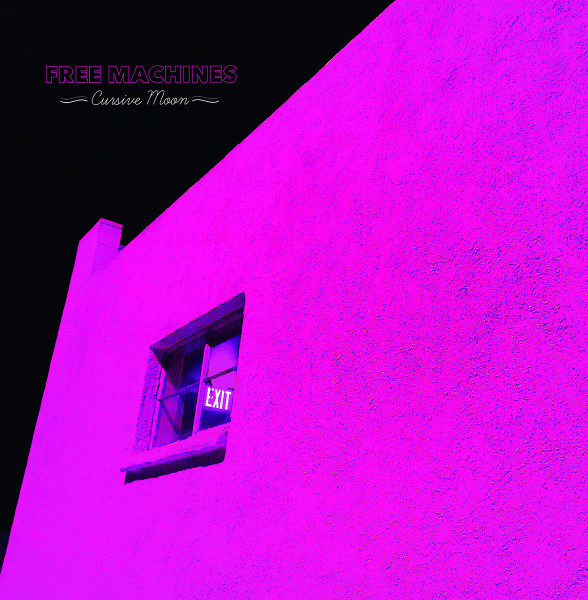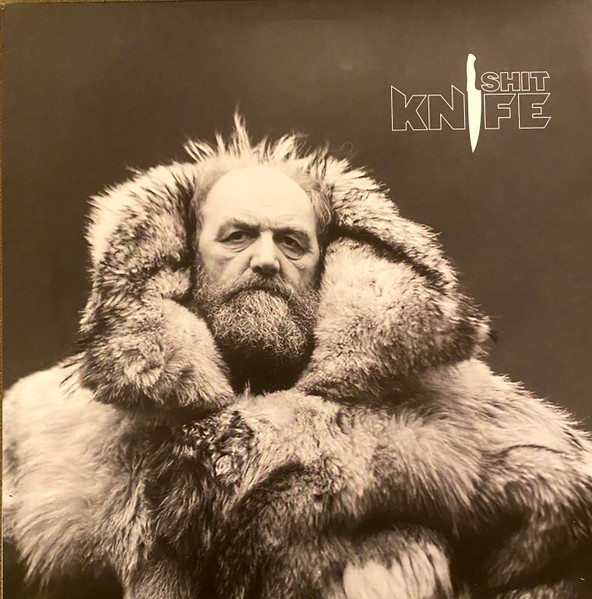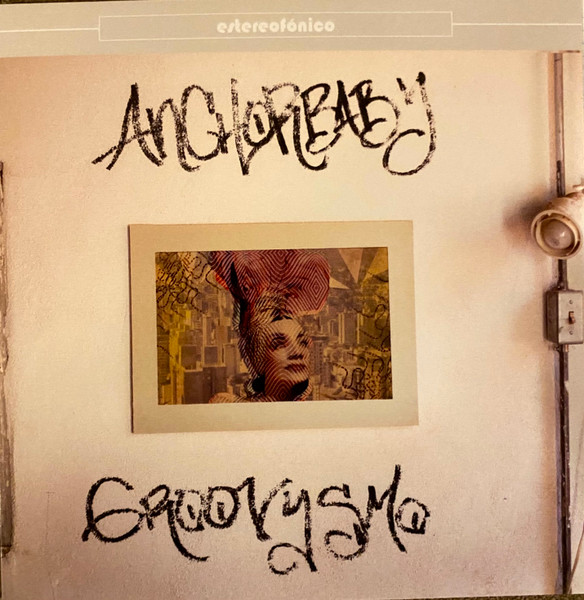
Reno,
I have to tell you about this batch of records I received from Midtown Island. They’re based in Tucson and all their releases are connected to the Lenguas Largas family tree. Well, at least the four I ordered are all related to Lenguas. Technically, Lenguas are still together, but it’s been too long since their last studio record. I miss that band. What’s it been six-to-eight years since their last full length, depending on your calculus? These Midtown records remind me of the late ‘80s when every member of the Cars put out a solo record. Those guys could barely muster the modicum of effort it took to be in the Cars. Making solo records would only entail more work, at least theoretically.
That’s not the case here. These Midtown Island releases are passion projects. At first, I was confused by the label name. I don’t associate Tucson with islands. Then I came across this phrase used in the region, “sky islands.” Did you ever hear that when you were living New Mexico? It refers to the huge mountains in the surrounding area, mountains that rise out of the desert (“…and they stand there!”). The phrase comes from a book, Sky Island, by Weldon Heald.
Doesn’t that image fit perfectly with Lenguas Largas? They have such a panoramic view of how to build and launch songs. Their best tracks spiral to the infinite in every direction with that kaleidoscopic blend of melodic punk and hard rock, especially Come On In. To varying degrees, each of these Midtown records has echoes of the Lenguas sound.

First up is a two-song 45 from the Gem Show led by John Polle. He played guitar in Treepeople, and I think he’s “Pio John” on the first Lenguas album. “Sippin’ Soda” opens with a super fuzzy bass line that reminds me of early Laura Ballance from Superchunk and lasts a little longer than expected, which is also reminiscent of Superchunk—even in shorter songs they love to loop parts an extra time or three. The Gem Show build basic frameworks focused on loud guitars, first-listen hooks, and clever, concise lyrics.
“I’m sippin’ soda
I’m sippin’ soda
On a sunny afternoon”
Those lines conjure plenty of positive memories, the first of which is the soda bar you and Chelsea had at your wedding. Also, the Kinks’ “Sunny Afternoon,” but with a more likable narrator. I think this guy is enjoying his soda and sun even though he’s belting it out with such intensity. I love the contrast between a pensive experience and a shouting-from-the-chaise lounge delivery. He seems equally content as he belts out “I’m going nowhere / I hope I get there soon.” Best of all is the brighter-than-Technicolor guitar break in the middle that sounds like XTC’s Andy Partridge. All that in 90 seconds.
The flipside, “Out in Space,” is equally direct.
“Out in space
Out in space
There’s a monster
There’s a monster!”
I can’t tell if this realization has them alarmed or exuberant. Are they pursuing the monsters, fleeing from them, or merely noting the presence of monsters in their (relative) midst? “Out in Space” stretches to four and a half minutes, so there’s plenty of time to pontificate. It’s also equally six string-centric, with loads of swirling slide guitar. Sonic density, lyrical levity, and cover art that resembles Ben Snakepit’s comics. Yes, please.

Free Machines are the most prolific of the Midtown bands. They have a couple of 7”s in addition to Cursive Moon, their second LP. Jimmy Teyechea leads Free Machines. He’s not in Lenguas, but Brian Bollt is and he’s all over this one.
Free Machines are closest to Lenguas, which is necessary because someone has to scratch that itch. The guitars roar throughout Cursive Moon. They dominate the mix and challenge the vocals to rise above the ruckus. Sometimes nervous and jittery, like a bunch of uncertain punks. Other times thumping and stomping with hard rock bravado. It brushes up against whatever it is some people get from Led Zeppelin, but doesn’t strut over that line. That balance wobbles on a couple of tracks, but that’s the exception. Cursive Moon consistently eclipses distinctions of punk and hard rock and melts into something celestial. I think Teyechea sees a different sky at night, or least sees it differently. It’s remarkable how he and Bollt blast with such force and render such beautiful, even touching, music.
You’ve used the phrase “guitar ecstasy” to describe when you and your guitar would get on the same page and the power would carry you “away to punk rock paradise.” Teyechea and Bollt deal a lot of guitar ecstasy here. The first two cuts are so good, it took me a while to explore the songs that followed. Teyechea and Bollt fuel the title track with three or four riffs that could easily power songs of their own. That’s a lot of guitar lines to coordinate and lesser talents would get tangled up in the ambition. Plus, they cook up guitar parts you could play in a music store when trying out guitar and they’d give music store snobs pause. “Cursive Moon” ends with a coda that feels like it’s moving into overdrive even though the tempo stays steady. On its heels is “D Is for Dilaudid.” Here the guitar ideas are placed end to end, one after another, rather than alongside each other. Also listen for the way drummer Johnnie Rinehart lays into the break just before the end. “How Ya Do” slows down and pushes a wonderfully dreamy pop sheen like Treasure Fleet or early Who. Some of that shine returns on “Magdalena,” though it moves more like the earlier songs. Plus, the chorus ends with the whole band punching accents in unison, which I know you’ll dig (and also use to great effect in your songs). I haven’t deciphered the story beneath “Sunken City,” the closing track, but give me time.

I abbreviated their band name as “S’Knife” in my notes, which reminds me of Shonen Knife. However, this record is bereft of further “Bear Up Bison” comparisons. The dude on the cover looks like he slays bison or caribou, or wee garage punk fans such as yours truly, and eats them raw. He’s intimidating.
So is Shit Knife. I think you sign on for that when you name your band Shit Knife. Isaac Reyes, Lenguas’ bandleader, formerly of Shark Pants and Swing Ding Amigos, is the vocalist, but he doesn’t play guitar. Let that sink in. An Isaac Reyes record with Isaac Reyes credited only on vocals. (I feel like Bruce McCulloch’s over-the-top Doors fan in that Kids in the Hall sketch. “The gypsies had no homes. The Doors had no bass. Let that liberate you.”) This sort of casting is on par with Jackie Chan riding alongside Owen Wilson in Shanghai Knights. Sure, Jackie is a fine comic talent, but no stunts? Really? Isaac is in fine form vocally and it works in the end, which is a testament to Isaac and/or whoever proposed that he stick to the mic.
Ironically, this is the least Lenguas-like of the Midtown records. It’s much darker, especially the trio of songs that open side one. They’re almost sinister, rendering the funhouse mirror aspect of Lenguas more like scary clown. Take “I Need a Job.” I worry about the narrator. What’s he willing to resort to? He’s been up way too long, and the sleep deprivation is blurring his boundaries fading. (Breaking Bad?)
Things open up with “Lord of the Robes” and “Conqueror Worm.” The hooks are more prominent and sink in faster. (I think “Conqueror Worm” is an Edgar Allan Poe reference, which fits.) There’s also a blast of free jazz sax solo at the end of “Classic Sock” that comes out of nowhere and ends too soon. I’d like to hear more of that. By the end of side one, Black Flag and the Stooges are coming to mind.
The songs aren’t as dense as Lenguas Largas and are less frantic than Shark Pants, which confused me. I wondered if this was what Albert Ayler fans experienced when he released New Grass in 1968. A maker of really complex music choosing to strip down and streamline. This backstory is different, though. Shit Knife existed prior to Isaac joining. They’d recorded the music for this album when they lost their singer. Isaac volunteered to step in. He was playing a lot of Grand Theft Auto at the time. He wrote all of the lyrics, which connect to that world. Even the illustrations on the back are characters from Grand Theft V. I’m convinced Isaac Reyes is among the genius wizards, and people in that line of work are supposed to zip slow burn curveballs our way once in a while.

Ricky Custodio Shimomoto plays nearly all the instruments on Groovysmo. (Yes, he’s also in Lenguas.) This is a delightful record, certainly the poppiest of the Midtown releases. Whereas the other Midtown bands are guitar-centric, Anchorbaby opts for a guitar/keyboard approach, and that’s just for starters.
Out of the gate I heard numerous psychedelic pop conventions. There’s the way Shimomoto weaves Mellotron, acoustic guitar and flute on “Nada.” There’s the underwater vocal effect on “Las Brujas” and the backward guitars and vocals on the title track. On “Las Brujas,” Shimomoto’s guitars ring and chime like the Byrds or R.E.M. “Quizas” sounds like a reunion of the Mike Mills/Bill Berry rhythm section with a driving Feelies guitar lead.
“Groovysmo I” is largely instrumental and could easily run much longer. Somewhere there’s a 20-minute outtake I’d be psyched to hear. I’m thinking of those ‘90s Manchester bands like Stone Roses, Happy Mondays, and the Inspiral Carpets. They talked way too much and fizzled more often than they delivered, but once in a while they pulled off really satisfying, really long songs (“Fool’s Gold,” “Step On,” “Plane Crash”). They needed a Ricky Custodio Shimomoto to harness the good ideas. He seems like one of those pop gurus who hears the whole thing in his head long before the tape rolls.
Then there’s “Nino de la Tierra.” It charges through a delightfully psych pop landscape for 1:45, at times similar to the XTC side project, the Dukes of Stratosphear. Then comes the extended coda. The tempo slows down, the band drops out except for an acoustic guitar. It’s almost loungey and that’s where the song ends, with this gentle landing and no returning to the soaring verse or chorus which fade in the rearview mirror.
I sensed Shimomoto was drawing on late ‘60s Brazilian pop, but suspected he had even more in mind, so I asked him.
“It’s influenced in the Tropicália movement,” he wrote, “and other Brazilian music, since I called the record Groovysmo as my personal statement of what I think groovy music should sound like. The first side is more pop, Brazilian, even Prog, and side two a little more rock, influenced by the Germans, and everything I like. Trying to do a record in Spanish that I would’ve liked to exist.”
Plus, in place of the kitschy English lyrics that can sink psych pop, Shimomoto writes more earnest ideas and sings in Spanish. And just when I thought I had my head wrapped around this record comes the closing track, “Groovysmo II.” The backing track has a whole different bounce. It sounds like Eddie Hazel and Isaac Hayes joining forces. It’s another example of Shimomoto’s big tent approach to what can constitute groovy. But while the music ranges across time and space, the vocals are laser focused. On top of the guitar, flute, and funk, Shimomoto adds sound bites which dive into the term “Anchorbaby.”
“The term used to describe children born in the United States to illegal immigrants,” says one voice.
“They’re anchoring themselves, literally, to the ground, so they can’t be taken away,” says another. The tone is snarky, judgmental. The MAGA hat is implied, but don’t a lot of people have children to anchor themselves in some capacity?
The final word goes to a third voice, “You can call me anchorbaby. I don’t find it offensive at all.” Own it, right? On the band’s website, it says “Build the wall if you want, the invasion happened a long time ago.” The politics implied in the first nine songs zoom to the foreground.
Anchorbaby might be a stretch for you, but I think you’ll come around. I just hope Groovysmo isn’t a one-and-done project.
Who knows when Lenguas Largas will bestow upon us another full-fledged classic, but until they rise again Midtown Island has us covered with a treasure trove of sweet Tucson sounds.
By the way, scratch that Cars comparison from first paragraph. Somewhere between the Kiss solo records and the Wu Tang universe is more apt, and of those, the latter is closer.
Can’t wait to hear what you think!
Mike
PS After all the years of you and Bowie talking about Stephen Sondheim musicals, I finally bought one. I found a copy of Company in a dollar bin. I’ll let you know what I think.
Photo: Konstantinos Hasandras/Unsplash
Follow Vol. 1 Brooklyn on Twitter, Facebook, and sign up for our mailing list.
